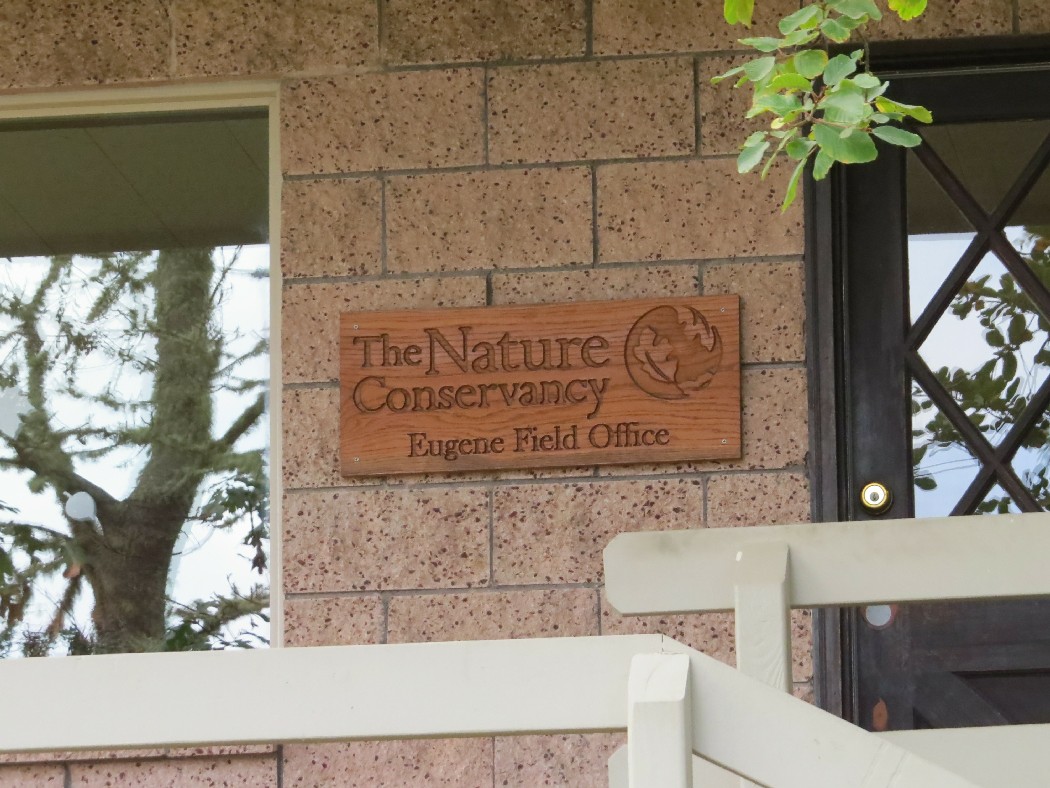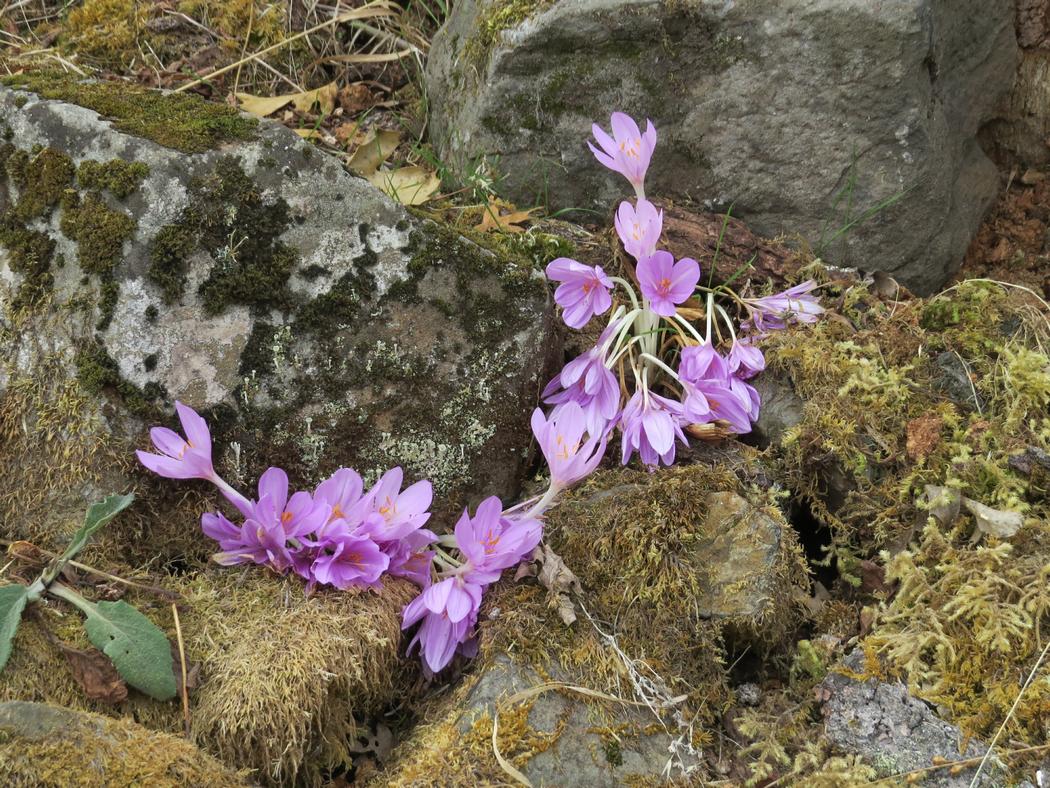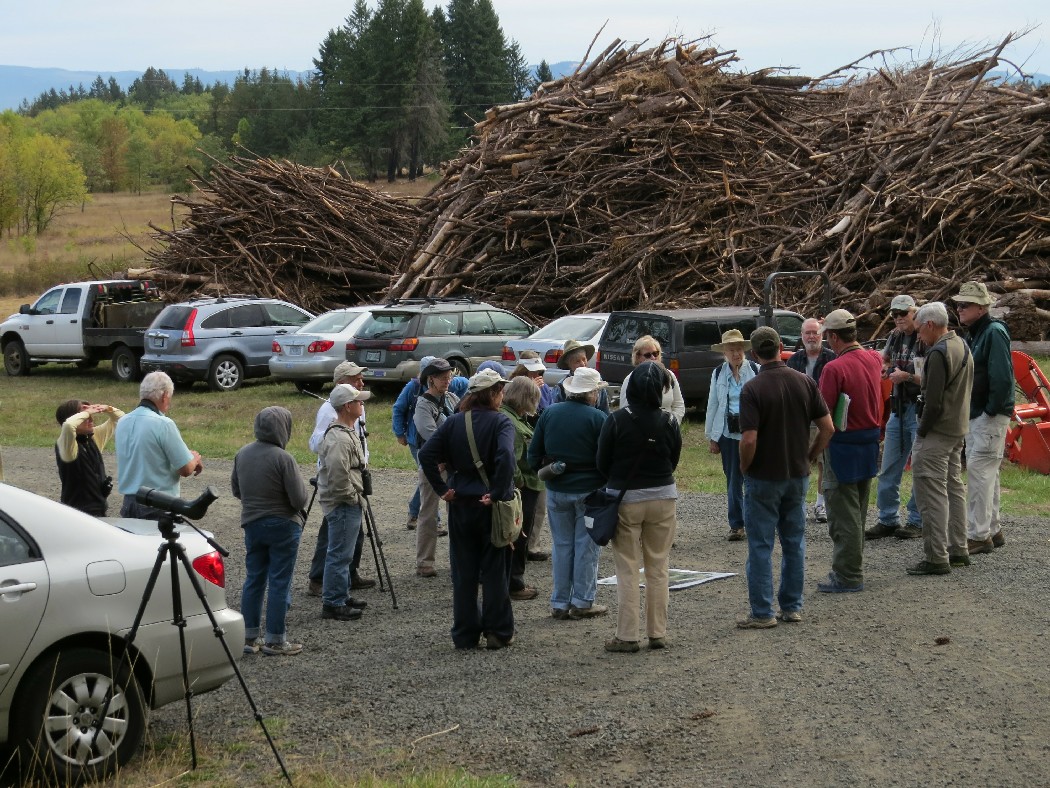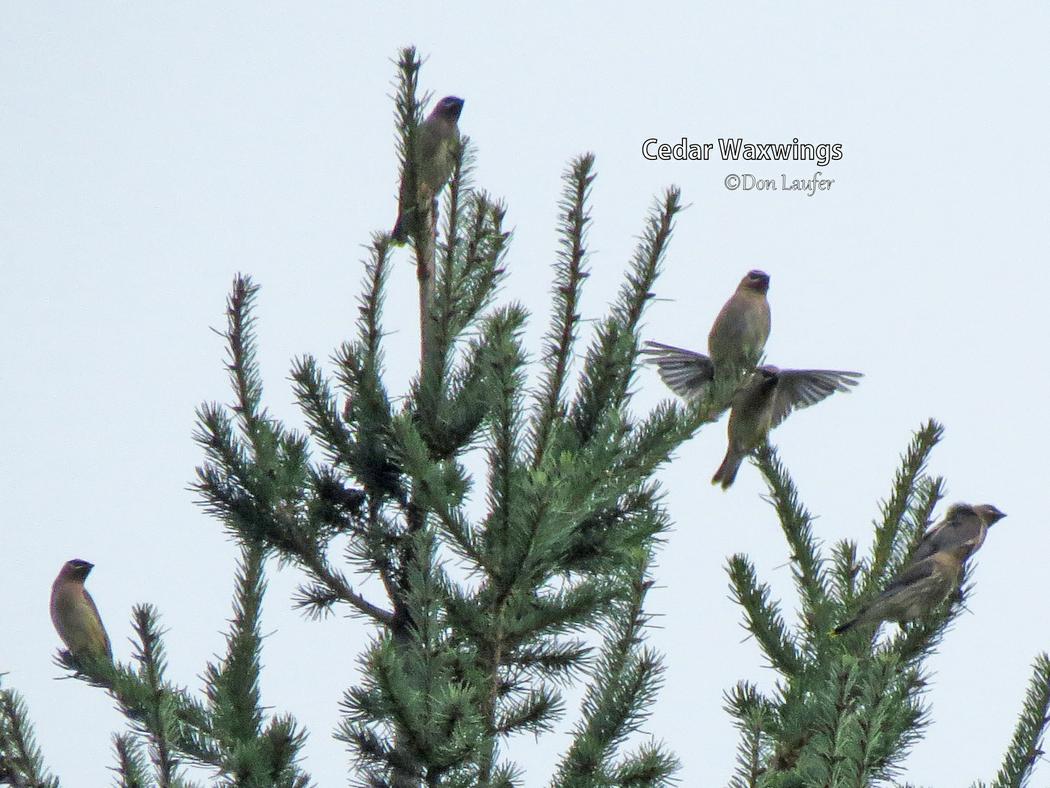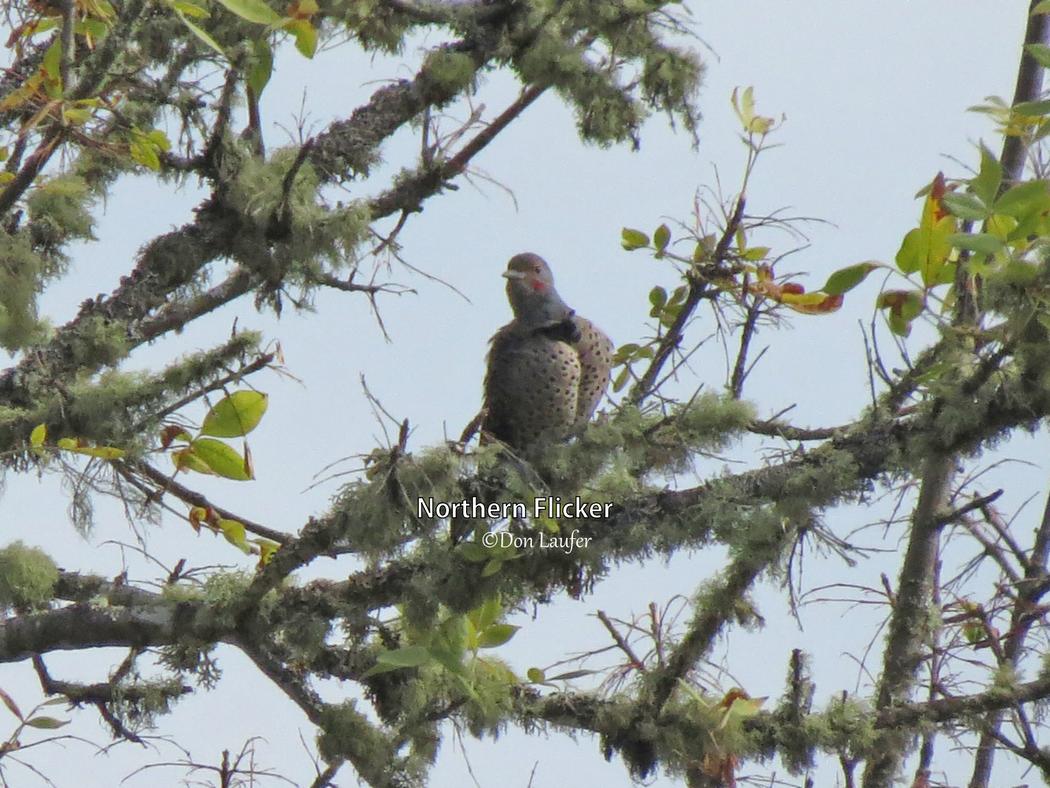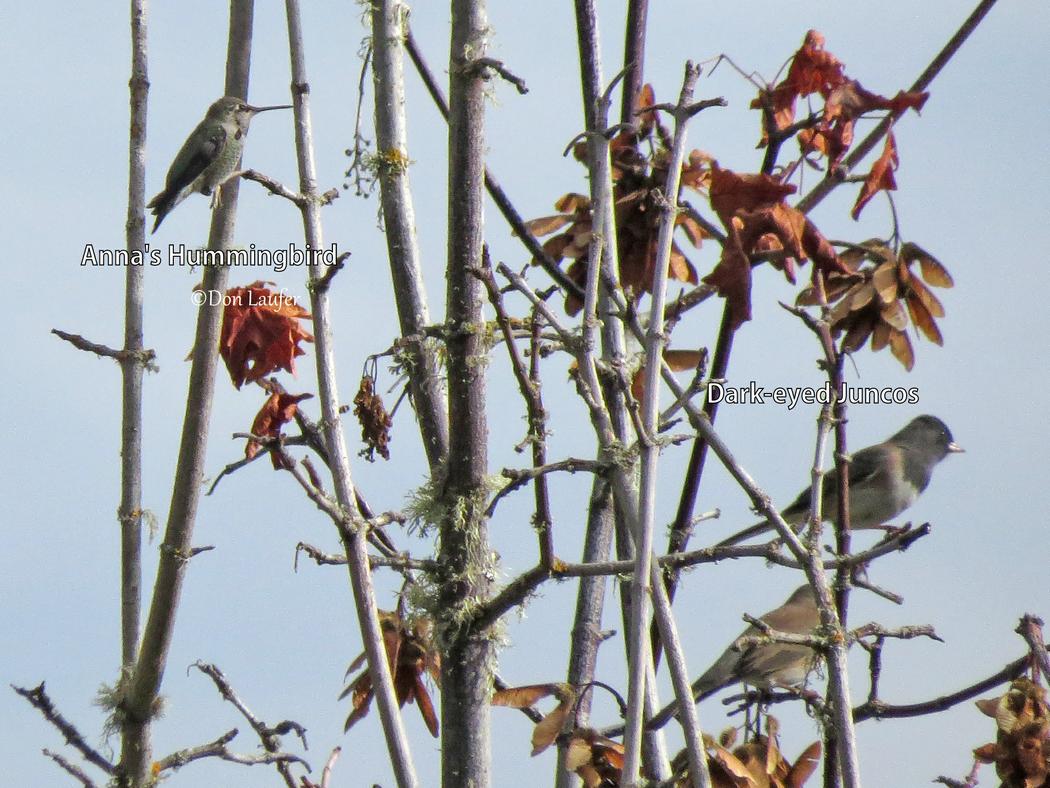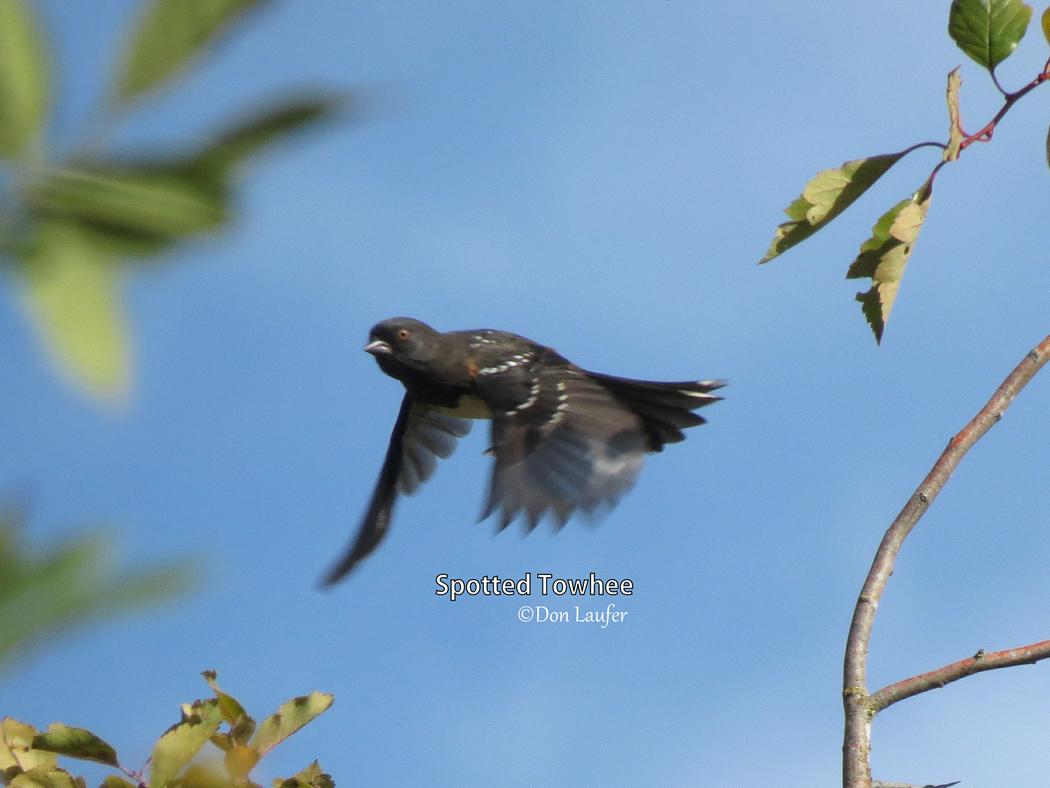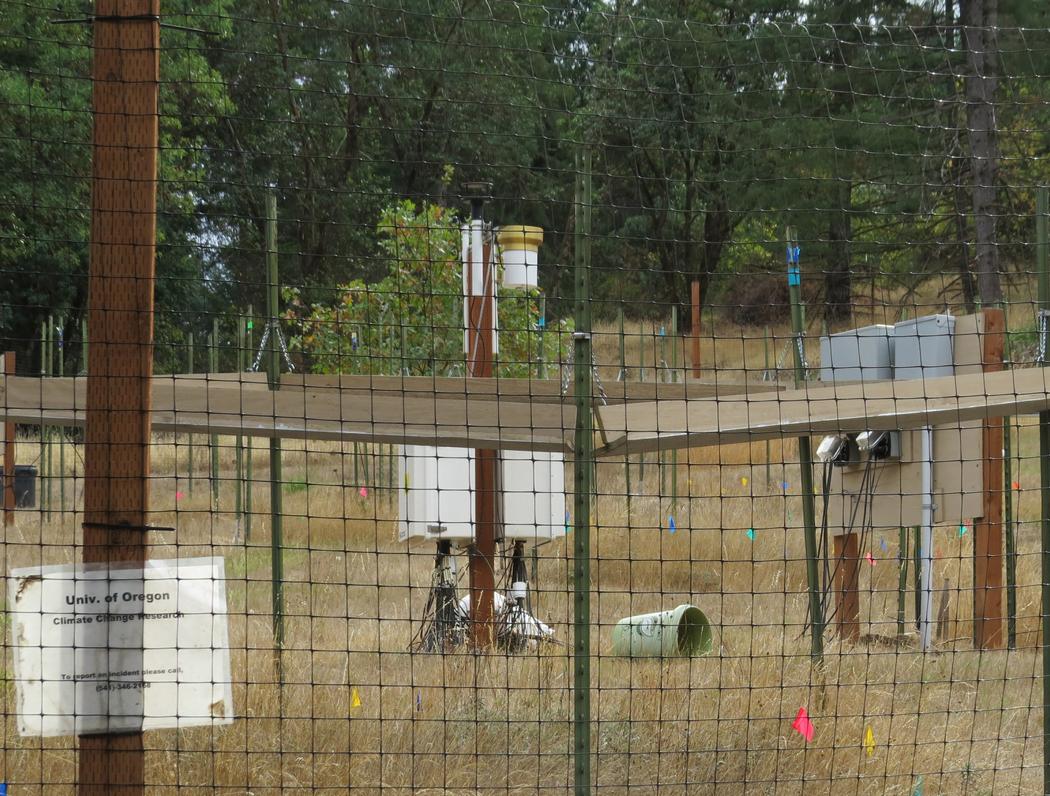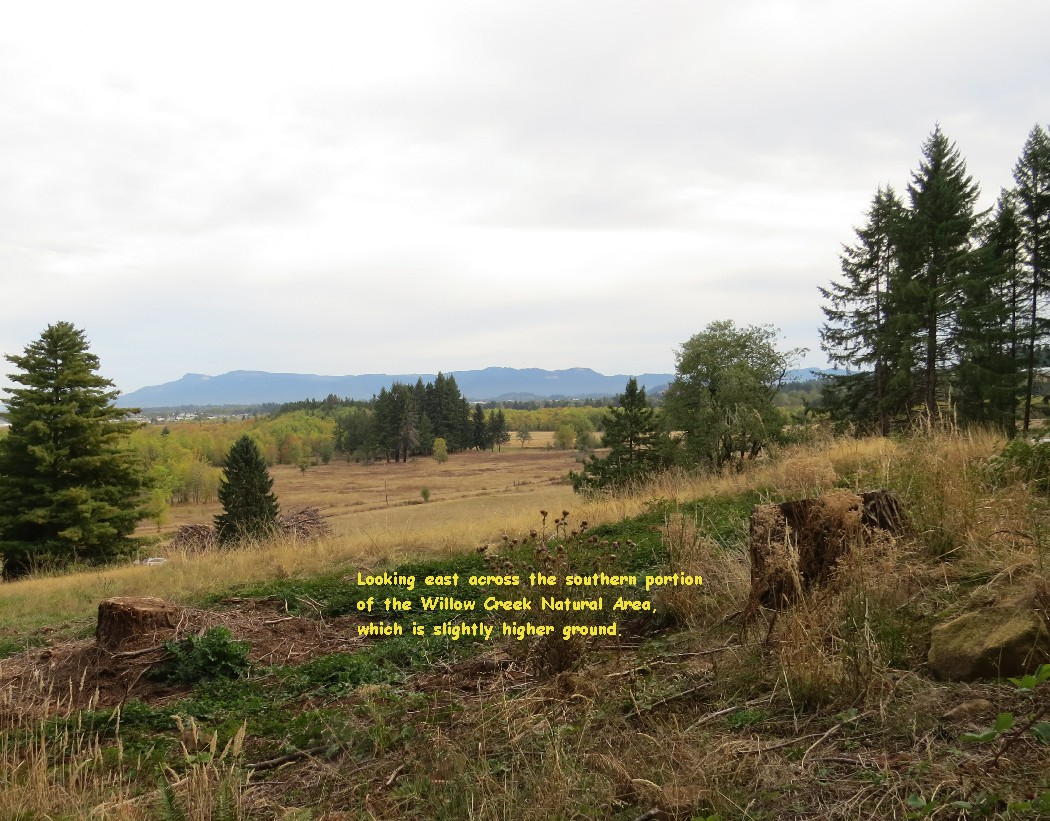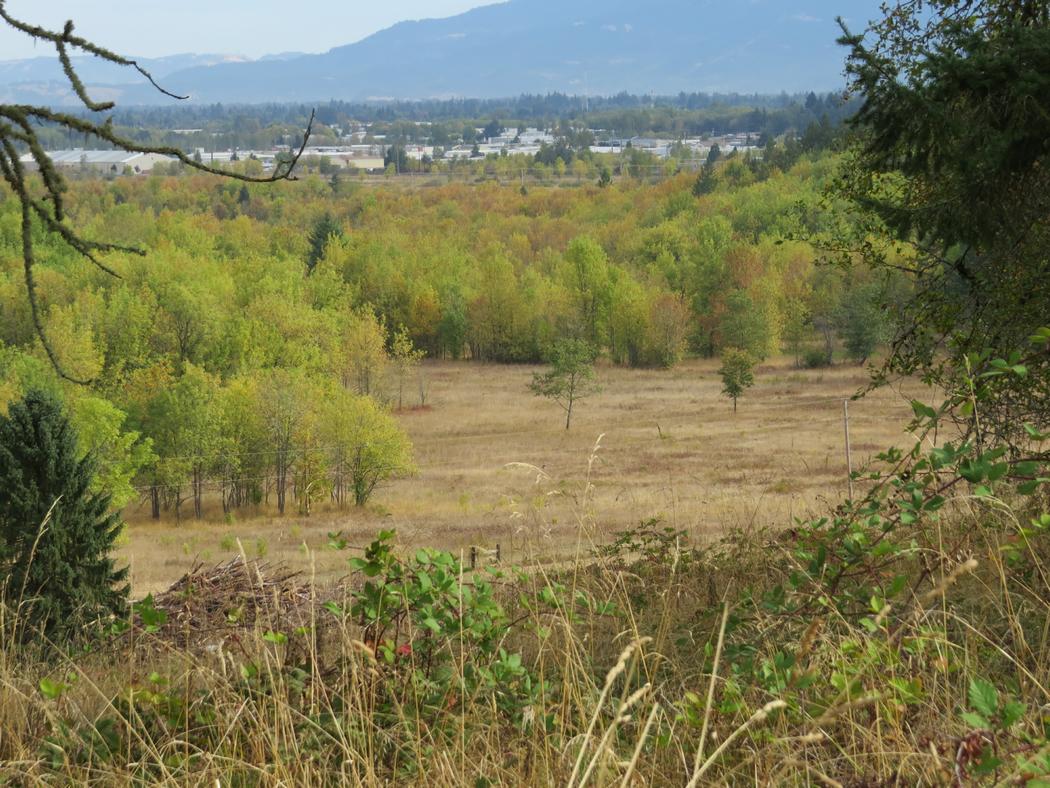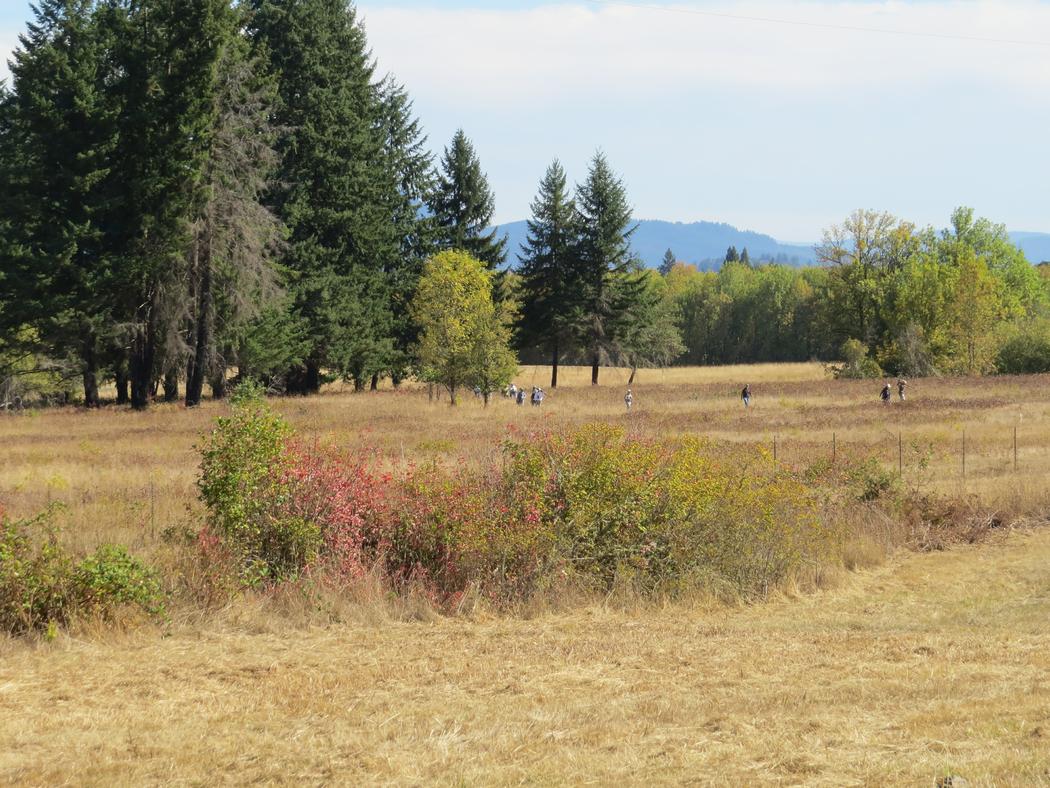Steve arranged for BOGS to visit the Willow Creek Natural Area which is managed by The Nature Conservancy.
This was exciting for me because after living in Eugene since 1978, it is rare I get an opportunity to go birding LOCALLY
at a place I have never been before. The McKenzie Land Trust's Green Island was another such place and I was excited
to finally see it after having read about it here and there for a number of years.
Early Crocuses were blooming in the rocks in front of Headquarters
Chris Pine of The Nature Conservancy gave us an introductory talk and showed us a large aerial photograph depicting
the preserve. He pointed out the places where rare plants were being monitored and habitat restoration was taking place.
From the Nature Conservancy website I gathered the following information, much of which Chris Pine had told us
when we were there.
- Willow Creek's native grasslands, ash woodlands and perennial streams provide the best remaining example
of native wet prairie habitats in the southern Willamette Valley.
- More than 200 native plant, 100 bird and 25 butterfly species have been recorded on the preserve.
- The Nature Conservancy has protected and managed portions of Willow Creek
under lease agreements with private landowners since 1981.
- In the 1990s, the Conservancy began purchasing additional Willow Creek properties and received gifts of property.
In 1995, the Bonneville Power Administration purchased a conservation easement over the property
as part of the agency's wildlife habitat mitigation program.
- Ecologists are monitoring water quality and conducting research on native reptiles, amphibians, butterflies,
native plants and other elements of Willamette Valley prairie ecology.
- The wet prairie on the preserve is characterized by tufted hairgrass and provides habitat
for the Willamette Valley daisy, white-topped aster and Bradshaw's lomatium.
- Fender's blue butterfly, thought to be extinct until rediscovered in 1989, is found in an upland prairie remnant
in association with the rare Kincaid's lupine, the primary food source of the butterfly's larvae.
- The preserve also hosts the western pond turtle, a reclusive species once common in the Willamette Valley but now rare.

After our orientation briefing, we walked past and behind the headquarters building, up a hill, to where the UofO
had an experimental ecological project set up with data sensors transmitting weather details over the internet.
We saw several species of birds along they way, though most of them were either high up in trees or pretty far away.
The birds we saw up that way included: Cedar Waxwings, Northern Flickers, Anna's Hummingbird and Spotted Towhee.
On our way back down the hill, they showed us an area where they were working on seed production of Kincaid's lupine,
which is the primary food plant for caterpillars of Fender's blue butterfly.
The headquarters building is more than a half mile south of West 18th street. The land rises towards the south.
Coming down the hill from headquarters, we had nice views of the lower wetland areas below, to which we were now going.
There were a few raptors flying about, and a few songbirds, but it was getting hot already and the birds were not too active. I looked in eBird later that day
and found that Tom Mickel, who was our guide for the birding walk portion, had seen some Western Bluebirds too. He told us that one of the birds
they are watching are Vesper Sparrows and hoping they will breed at Willow Creek. The species has been seen but I don't think Tom said they were breeding there yet.
If they are, it was only 1-3 breeding pairs. (Sorry, it has been too long since the trip for me to remember some of these details with confidence).
Don got a pretty nice photo of an American Kestrel
Marlene and I returned to the cars 10 or 15 minutes ahead of everyone else. I took this photo of some our of group
walking through the fields behind us as they made their return trip
Bird list for walk in Nature Conservancy land in the Willow Creek area in Southwest Eugene, September 24, 2015.
The weather was dry, sunny and very warm.
-- compiled by Doris Wimber
- Turkey vulture
- Red-tailed hawk
- Red-shouldered hawk
- American kestrel
- Mourning dove
- Anna's hummingbird
- . Northern flicker
- Red-breasted sapsucker
- Steller's jay
- Scrub jay
- Brown creeper (heard)
- Bewick's wren
- American robin
- Cedar waxwing
- Spotted towhee
- Song sparrow (heard)
- Dark-eyed junco
- Brewer's blackbird
- Red-winged blackbird (Mary Lee got this one in the cattails beside the wood pile, when we first arrived)
- House finch





